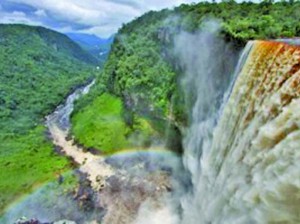Former Deputy Commissioner of the Protected Areas Commission, Denise Fraser said ecotourism in Guyana remains virtually untapped. Speaking at the recent launch of the “Wetlands of Guyana” publication by the World Wildlife Fund (WWF), Fraser noted that the important economic benefits of wetlands and their biodiversity are being increasingly recognised not only in Guyana but around the world.




